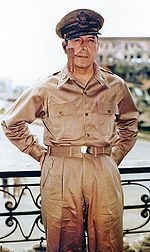Pict Clanns of Albann

Clann MACARTHUR

Traditionally, the MacArthurs, who descended from either ancient British (or possibly Pict) stock, are the oldest of all clans in Argyllshire. By 300AD, the Britons' P-Celtic language had displaced the old Orcadian Pict language all the way to the Shetland Islands. After the Roman Legions had left Britain after 400AD, the British kingdoms of Gododdin, Strathclyde and Rheded in southern Albann, fought to maintain their independence from both the Picts to the north, and the Angles to the south.
In their P-Celtic language, the earliest surviving Scottish poem was composed, telling of the defeat of the Gododdin heroes by the Angles, and this poem contains the earliest reference to the British resistance leader, Arthur. The story of Arthur travelled over the Brythonic world until he was given a new setting as far south as Tintagel in Welsh-speaking Cornwall.
In the 13th century, a MacArthur married the heiress of Duncan mac Duibhne of Loch Awe. This was before the rise of the Campbells who were also called the Clanh Ua Duibhne. Therefore, it is claimed by some that the MacArthurs were the forebears of the Campbells. The MacArthurs greatly increased their territory through their support of Robert the Bruce in the Scottish wars of independence.
As an extra reward, their chief was made hereditary Captain of the Castle of Dunstaffnage. Part of their new estates had once belonged to the MacDougalls, who had opposed the Bruce and were punished accordingly. MacArthur ascendancy only lasted for a century before John MacArthur was beheaded by James I in 1427, when he 'cleaned house' on his return from his long captivity in England. All MacArthur lands were forfeited to the crown.
This
was the royal way of settling an ancient territorial dispute with the MacRuars,
who were connected to the Drummonds. The MacRuar chief was also executed,
ostensibly to ensure the other clan chiefs behaved better. However, in
modern times, the name of MacArthur has been carried to the ends of the earth.
John MacArthur (1767 - 1834) arrived with his regiment in 1790 in New South Wales, where he was Commandant at Parramatta from 1793 to 1804. In 1794, he laid the foundations for the Australian wool industry by crossing Bangali and Irish sheep, then introducing Merino sheep from Africa. In 1817, he planted the first Australian vineyard.
In 1807, Captain Bligh of the Bounty, who had been appointed Governor, tried to arrest MacArthur, but MacArthur showed him he had met his match by arresting him instead. He justly ranks as a father of Australia.
In 1840, an emigrant from Strathclyde, landed in the United States. His son, Arthur MacArthur served in the army, a career that was followed by his son, General of the Army, Douglas MacArthur (1880 - 1964), who was the Supreme Allied Commander of the Pacific war, and became Military Governor of Japan after receiving the surrender of Emperor Hirohito at the end of the second World War.
In a typical understatement, when asked what he thought of the former General Eisenhower becoming President of the United States, he responded; "I'm sure he'll do a fine job, he was the best clerk I ever had".